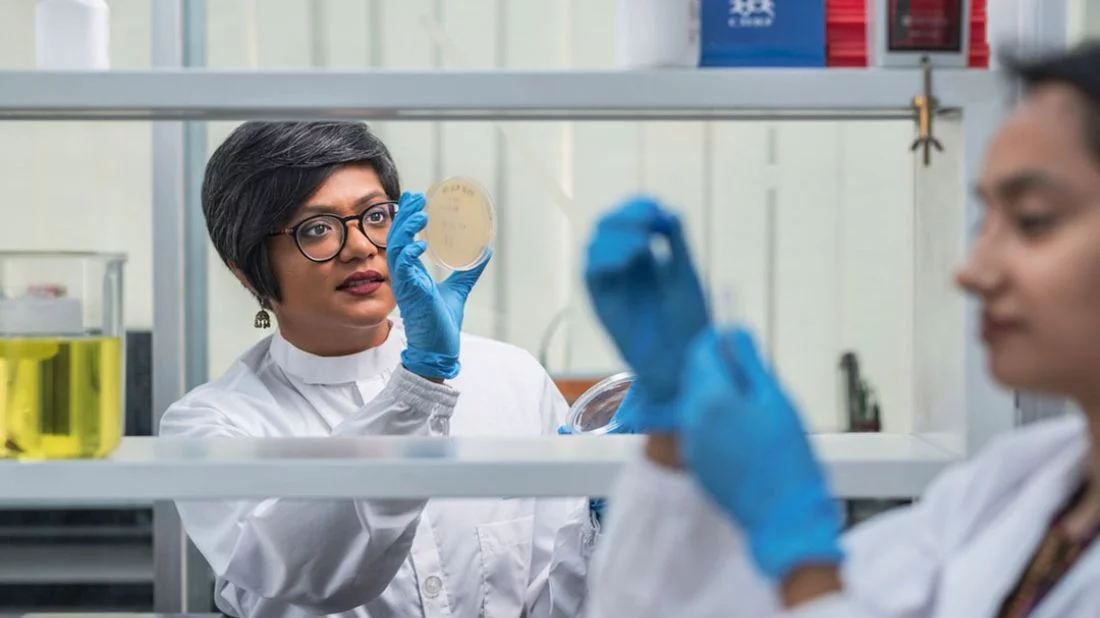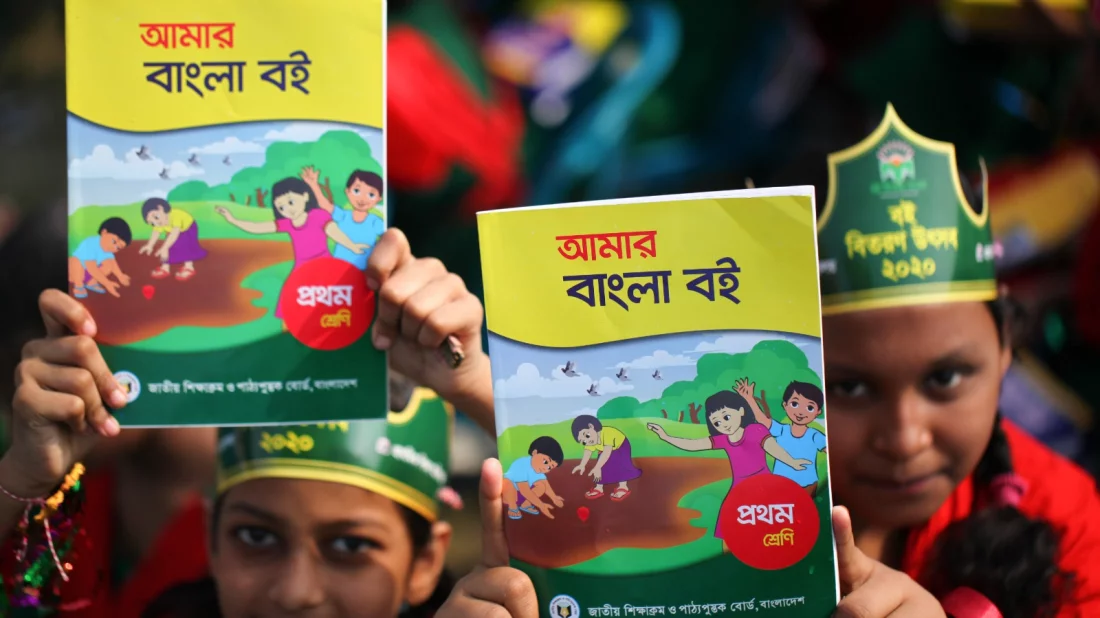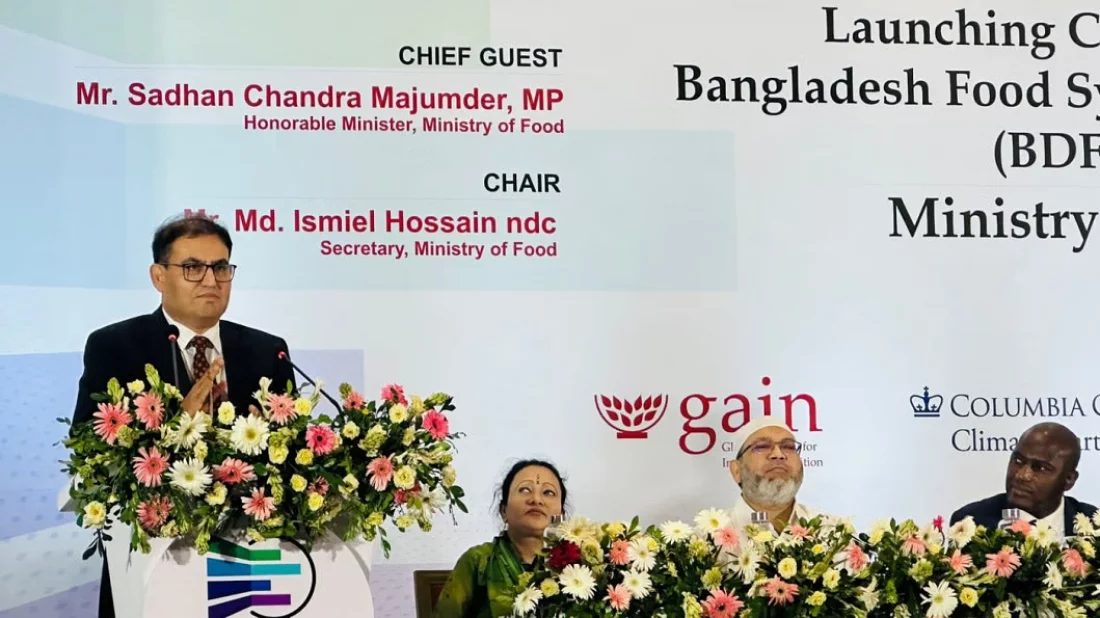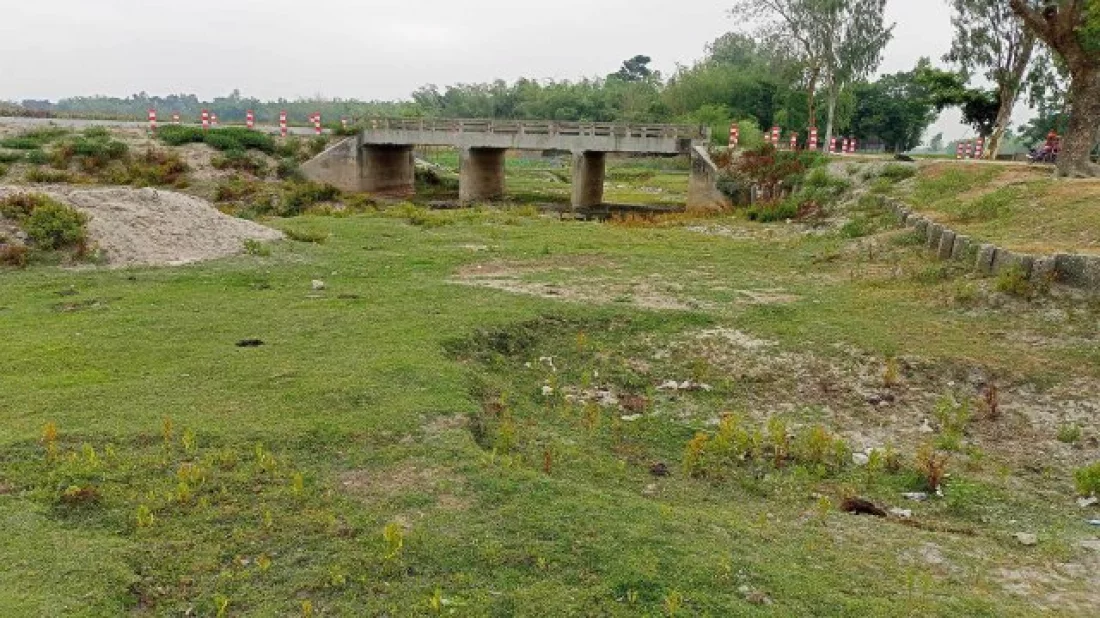
Salmonella Typhi is the bacterium responsible for typhoid fever, and it continues to be a major public health threat in Bangladesh and similar regions. It spreads primarily through contaminated food and water.
Recent discoveries have shown that viruses known as bacteriophages, which infect and kill bacteria, could play a crucial role in controlling the spread of this disease.
Typhoid burden can vary widely; for example, in Bangladesh, burden is high in the urban capital city of Dhaka but 100-fold lower in the rural site, Mirzapur Upazila in Tangail, according to a study by the Child Health Research Foundation (CHRF).
The researchers tested an environmental surveillance tool that detects bacteriophages (viruses) against Salmonella Typhi in environmental water bodies using simple assays. Testing of 303 water samples from Dhaka and Mirzapur revealed a 10-fold lower abundance of bacteriophages in Mirzapur, suggesting a correlation with the community's typhoid burden.
During the study, conducted in 2021, the Salmonella Typhi-specific bacteriophages were detected in 66 of the 211 (31%) environmental samples in Dhaka, in comparison to 3 of the 92 (3%) environmental samples from Mirzapur.
In the same year, 4,620 blood cultures at the two largest paediatric hospitals in Dhaka yielded 215 (5%) culture-confirmed typhoid cases, and 3,788 blood cultures in the largest hospital in Mirzapur yielded two (0.05%) cases. Some 75% (52/69) of positive phage samples were collected from sewage.
According to the findings, the identification of regions where typhoid fever is prevalent could be expedited and accomplished cost-effectively through the monitoring of bacteriophages in effluent.
The study was covered by Nature and GAVI due to its significant public health implications.
For prevention, the World Health Organization (WHO) has prequalified two typhoid conjugate vaccines for use to reduce the burden of typhoid fever, while there is widespread misuse of antibiotics to treat the fever.
The CHRF is dedicated to improving child health through high-quality research focused on diagnosing, preventing, and treating infectious diseases prevalent in Bangladesh and beyond.
In March this year, scientists at the CHRF made a breakthrough by generating the first single-cell genomics data from Bangladesh. They are part of an international team with representatives from Harvard University, MIT, and Boston Children's Hospital.
A new era in research
The CHRF has received a competitive R01 research grant from the National Institutes of Health (NIH), USA. This grant will fund a groundbreaking five-year study titled "Investigating the Dynamics of Salmonella Typhi and Bacteriophages in the Environment and the Human Gut," marking a significant milestone in Bangladesh's research capabilities.
"We hope this project serves as a beacon, demonstrating that high-calibre research can be conducted in countries like ours and can contribute significantly to the global scientific community," said Dr Senjuti Saha, the principal investigator of the project.
This NIH R01 grant is particularly notable as it is one of the few instances where such a competitive research grant has been awarded to a project conceived and executed entirely by scientists in Bangladesh, she told Dhaka Tribune.
“By advancing our understanding of the environmental and biological dynamics of typhoid fever, CHRF aims not only to enhance scientific knowledge but also to pave the way for more effective public health interventions against this enduring disease,” Dr Senjuti added.
In 2021, Dr Senjuti was appointed to serve on the Polio Transition Independent Monitoring Board (TIMB), created by the Global Polio Eradication Initiative, to monitor and guide the process of polio transition planning. This is the first time a Bangladeshi has been appointed to this position.
Using robust preliminary data generated from previous studies funded by the Bill and Melinda Gates Foundation, the CHRF aims to delve deeper into the ecology of Salmonella Typhi and its interactions with bacteriophages.
This research will focus on understanding how different strains of Salmonella Typhi respond to these phages and how this interaction could potentially influence the bacterium's ability to cause disease.
The project will employ a combination of genetic, molecular, and biochemical methods to explore these interactions in detail.











